Timetable
Log in to star items and build your individual schedule. .
Time zone: Europe/London
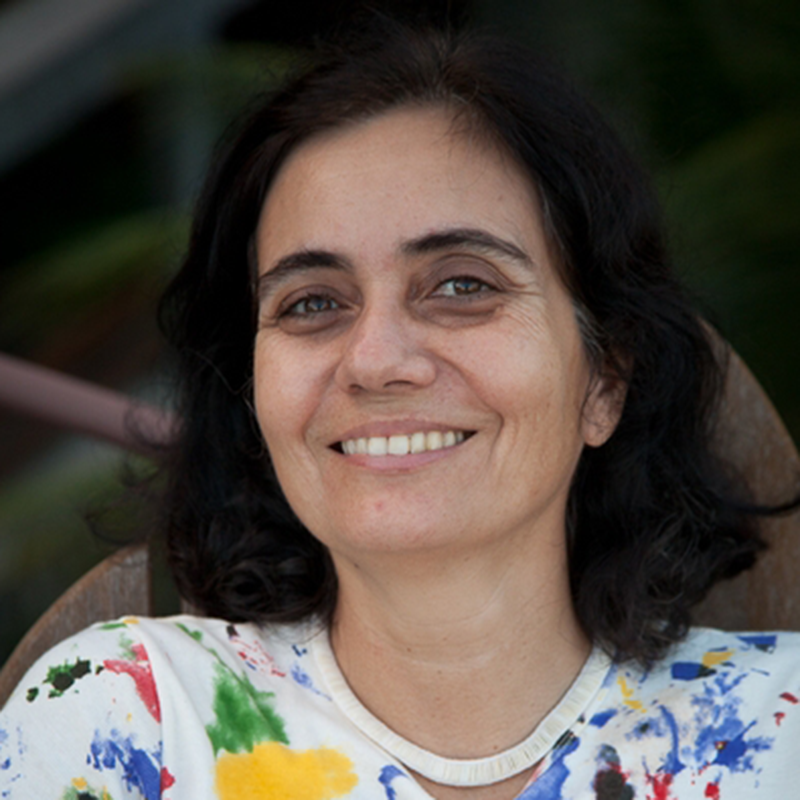 Raymond Firth Memorial Lecture: Viruses, human-animal relations and response-ability in Indigenous Amazonia
Raymond Firth Memorial Lecture: Viruses, human-animal relations and response-ability in Indigenous Amazonia
Aparecida Vilaça (Museu Nacional - UFRJ)
Beginning with some recent reflections of Amazonian peoples concerning the animal origin of infection by Covid-19, I intend to discuss human-animal relations, which in this ethnographic region are based on a mythology that presupposes an indiscernibility between different types of beings. The sociocultural transformations arising from contact, especially Christianization, a theme central to Firth’s work, will allow us to approach this topic from another angle, revealing some of the paths taken by the response-ability of these peoples to changes.
Look out for Welcome Social Session in the Hopin programme. Bring a drink and chat with your colleagues!
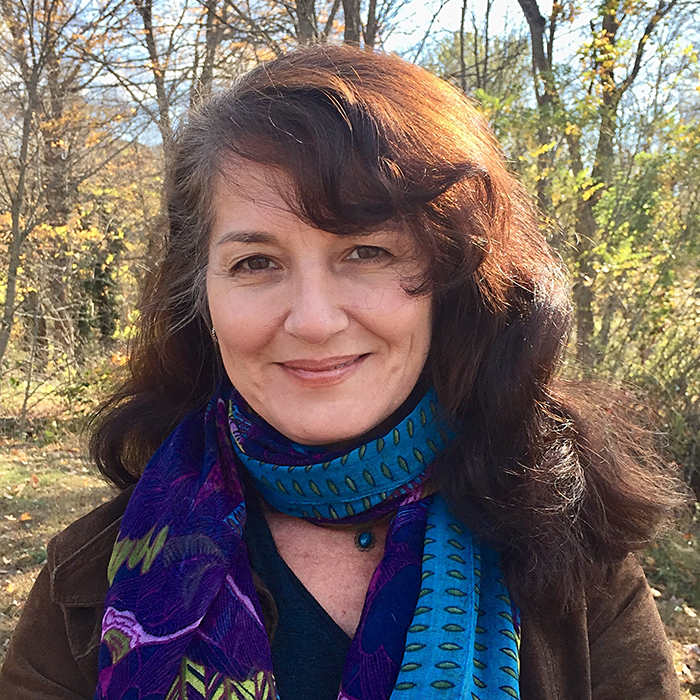 Shrunken Life: Discourses of the Cryptic and the Miniature
Shrunken Life: Discourses of the Cryptic and the Miniature
Genese Marie Sodikoff (Rutgers University-Newark)
As scientists scour remnant habitats and “unmask” cryptic species with DNA barcoding, a boom of species discovery has enchanted the world. In Madagascar, recent discoveries of previously unknown miniature frogs and chameleons, photographed on the tips of human fingers, have captured the public imagination. In this imagery of scale, the giant human finger conveys the outsized impact of humanity on Earth, or points to what Susan Stewart calls “a physical world of disorder and disproportion.” Although the phenomenon of insular gigantism and dwarfism has shaped scientific discourses of evolution and extinction since the nineteenth century, recent reportage on “new” miniature and cryptic species reflects a sensibility beyond wistful nostalgia for creatures past. Species miniaturism evolves out of habitat constriction, and living minifauna encapsulate the contraction of existential time. Photographs of cryptic minifauna therefore compel us to reflect on the whole of our losses, while they fuel the impulse to restock the “library of life” at micro-scale.
 The State of Embattlement, or Life in the Expectation of Extinction
The State of Embattlement, or Life in the Expectation of Extinction
Dace Dzenovska (University of Oxford)
Residents of the emptying villages in Latvia’s eastern borderlands occasionally describe their future as extinction. They expect their world to end, and they imagine the future as replacement by wild nature or another civilization. They are not alone. In today’s world, there are many competing existential threats—from epidemics to climate change, crumbling political orders, and a possible Sixth Mass Extinction. Instead of looking to the future as an improvement on the present, more and more people strive to protect themselves from it or insure themselves against its ravages.
In this talk, I take the existential threats perceived and experienced by the citizens and residents of Latvia as a lens for analysing the predominant spatial and temporal orientations in today’s world. Some of these threats, such as the ever imminent Russian invasion, are constitutive of the nation and therefore familiar. Others, including mass emigration, climate change, and the crisis of the liberal international order, are new. It is the management of threats—rather than the pursuit of a better future—that dominates the public and political space in Latvia and beyond. Embattlement, rather than progress, is the new grand narrative.
 Extinction’s edges (and other spatial imaginaries)
Extinction’s edges (and other spatial imaginaries)
Liana Chua (Brunel University London)
In international conservation and environmentalist imaginaries, extinction is often cast as an ‘edge’ off which species gradually fall. Concomitantly, humanity is depicted as morally responsible for drawing species back from that brink. In my intervention, I consider alternative figurations of extinction’s spatial imaginaries, asking not only how edges are ‘dulled’ (van Dooren 2014), but also how they are variously used, remade, or transformed by other spatial possibilities and more-than-human configurations. These in turn raise questions about what responsibility implies and entails at a time of mass extinction.
The ASA warmly invites all members to attend the Association AGM. Read the agenda here, which has links to the previous minutes, the collated reports and the 2020 acccounts.
Members who wish to attend who are not attending the conference should email membership(at)theasa.org so Elaine can sort out access.

Join Berghahn Books to celebrate some of their new publications in Anthropology. Meet the writers and editors and raise a glass of wine, fizz, or whatever takes your fancy, at this BYOB reception!
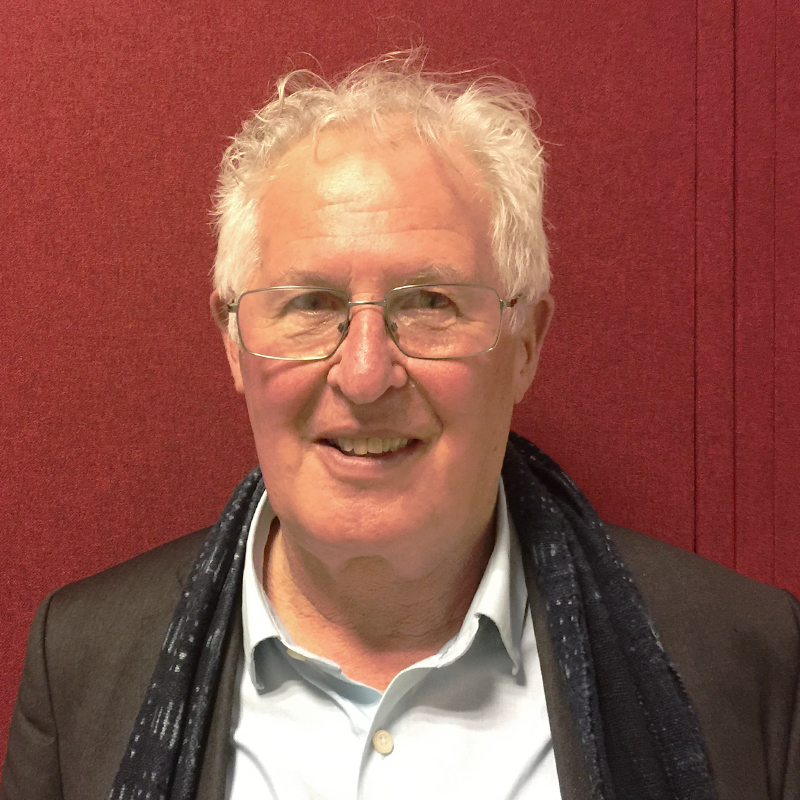 Ladislav Holy memorial lecture: Responsibility versus Responsibilization Anthropologists, ‘Witchcraft’ and the Accountability of Conspiracy Thinking
Ladislav Holy memorial lecture: Responsibility versus Responsibilization Anthropologists, ‘Witchcraft’ and the Accountability of Conspiracy Thinking
Peter Geschiere (University of Amsterdam)
Chair: Roy Dilley (University of St Andrews)
What can anthropology contribute to analyzing ‘responsibility’? Kinship - an anchor of our discipline for Ladislav Holy and many others - suggests a focus on taking responsibility. But ‘witchcraft,’ in many African settings seen as the reverse of kinship, rather raises issues of responsibilization, in the sense of tracing accountability. In her recent book Mafiacraft, Deborah Puccio-Den signals that for both social scientists and Sicilians such responsibilization became a major challenge in order to grasp an unnamed form of agency that insisted on hiding itself. Studying responsibility as responsibilization might be relevant for present-day contexts, marked all over the world by an avalanche of conspiracy theories in which actors remain hidden, defying the border between imaginary and real.
Peter Geschiere (University of Amsterdam) is emeritus professor for the Anthropology of Africa at both the University of Amsterdam and Leiden University; he is also co-editor of ETHNOGRAPHY (SAGE). Since 1971 he has undertaken historical-anthropological field-work in various parts of Cameroon and elsewhere in West and Central Africa. His publications include The Modernity of Witchcraft: Politics and the Occult in Post-colonial Africa (Univ. Of Virginia Press, 1997), Perils of Belonging: Autochthony, Citizenship and Exclusion in Africa and Europe (Univ. of Chicago Press, 2009), Witchcraft, Intimacy and Trust: Africa in Comparison (Univ. of Chicago Press, 2013) and (with Rogers Orock) ‘Anusocratie? Freemasonry, sexual transgression and illicit enrichment in postcolonial Africa, Africa 90(5), 2020:831-51
This plenary will foster interdisciplinary dialogue between anthropologists and life scientists whose work focuses on epidemics and infectious diseases.
COVID-19 has generated interest in epidemics and infectious diseases across different fields of anthropology. This plenary draws together anthropologists and life scientists with long-term commitments to the study of epidemics so as to discuss how responding and preparing for such phenomena require reconceptualisations of health, illness, and infection, and the ways in which they challenge and trouble existing, Global Health and One Health frameworks of responsibility.
 Janet Cox-Singh is a bio-medical research scientist and academic working in the University of St Andrews. Her field of research is emerging infectious disease, particularly at the wild macaque – human interface in rural Southeast Asia. She was fortunate to live and work in Malaysian Borneo where she was part of the team who discovered zoonotic malaria - the entry of a macaque malaria parasite into the human population. Her current research focuses on pathogen exchange between macaque monkeys and remote communities in rural Sulawesi. Her broader research interest in zoonoses revolves around how, why, where and when.
Janet Cox-Singh is a bio-medical research scientist and academic working in the University of St Andrews. Her field of research is emerging infectious disease, particularly at the wild macaque – human interface in rural Southeast Asia. She was fortunate to live and work in Malaysian Borneo where she was part of the team who discovered zoonotic malaria - the entry of a macaque malaria parasite into the human population. Her current research focuses on pathogen exchange between macaque monkeys and remote communities in rural Sulawesi. Her broader research interest in zoonoses revolves around how, why, where and when.
 Lisa Boden is Professor of Population Medicine and Veterinary Public Health Policy at the University of Edinburgh, based in the Global Academy of Agriculture and Food Security; current President of the European College of Veterinary Public Health (www.ecvph.org) and Deputy Director of EPIC (Scottish Government’s Centre for Expertise in Animal Disease Outbreaks at www.epicscotland.org) which provides policymakers with rapid access to emergency scientific advice and analyses to prepare for and respond to exotic and novel animal disease outbreaks. Professor Boden is leading a programme of One Health research in the global north, and in fragile and conflict affected regions (such as Syria and surrounding countries- see One Health FIELD Network) to improve preparedness and timely response to global health and food security threats.
Lisa Boden is Professor of Population Medicine and Veterinary Public Health Policy at the University of Edinburgh, based in the Global Academy of Agriculture and Food Security; current President of the European College of Veterinary Public Health (www.ecvph.org) and Deputy Director of EPIC (Scottish Government’s Centre for Expertise in Animal Disease Outbreaks at www.epicscotland.org) which provides policymakers with rapid access to emergency scientific advice and analyses to prepare for and respond to exotic and novel animal disease outbreaks. Professor Boden is leading a programme of One Health research in the global north, and in fragile and conflict affected regions (such as Syria and surrounding countries- see One Health FIELD Network) to improve preparedness and timely response to global health and food security threats.
 Frédéric Keck is Director of Research at the Laboratory of Social Anthropology (CNRS-Collège de France-EHESS). After studying philosophy at the Ecole Normale Supérieure in Paris and anthropology at the University of California at Berkeley, he has investigated the history of social anthropology and contemporary biopolitical questions raised by avian influenza. He has been the director of the research department of the musée du quai Branly between 2014 and 2018. He published Claude Lévi-Strauss, une introduction (Pocket-La découverte, 2005), Lucien Lévy-Bruhl, entre philosophie et anthropologie (CNRS Editions, 2008) Un monde grippé (Flammarion, 2010) and Avian Reservoirs : Virus Hunters and Birdwatchers in Chinese Sentinel Posts (Duke University Press, 2020).
Frédéric Keck is Director of Research at the Laboratory of Social Anthropology (CNRS-Collège de France-EHESS). After studying philosophy at the Ecole Normale Supérieure in Paris and anthropology at the University of California at Berkeley, he has investigated the history of social anthropology and contemporary biopolitical questions raised by avian influenza. He has been the director of the research department of the musée du quai Branly between 2014 and 2018. He published Claude Lévi-Strauss, une introduction (Pocket-La découverte, 2005), Lucien Lévy-Bruhl, entre philosophie et anthropologie (CNRS Editions, 2008) Un monde grippé (Flammarion, 2010) and Avian Reservoirs : Virus Hunters and Birdwatchers in Chinese Sentinel Posts (Duke University Press, 2020).
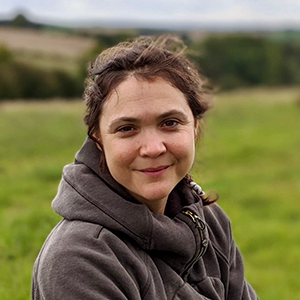 Ann H. Kelly is a Reader of Anthropology and Global Health at King’s College London. Her ethnographic work focuses on socio-material practices of global health research and innovation in Sub-Saharan Africa, recent examples of which have been published in American Ethnologist, Cultural Anthropology, Social Studies of Science, Social Science and Medicine, Economy and Society and Visual Anthropology. She is currently collaborating on number of transdisciplinary collaborations at the interface of infectious disease control, health system strengthening and global outbreak response. She serves on the WHO Strategic Advisory Group of Experts (SAGE) for Ebola Vaccines and Vaccination, contributing to recommendations on emergency clinical trial design, compassionate access to experimental products and potential post-licensure immunization strategies.
Ann H. Kelly is a Reader of Anthropology and Global Health at King’s College London. Her ethnographic work focuses on socio-material practices of global health research and innovation in Sub-Saharan Africa, recent examples of which have been published in American Ethnologist, Cultural Anthropology, Social Studies of Science, Social Science and Medicine, Economy and Society and Visual Anthropology. She is currently collaborating on number of transdisciplinary collaborations at the interface of infectious disease control, health system strengthening and global outbreak response. She serves on the WHO Strategic Advisory Group of Experts (SAGE) for Ebola Vaccines and Vaccination, contributing to recommendations on emergency clinical trial design, compassionate access to experimental products and potential post-licensure immunization strategies.
 A. David Napier is Professor of Medical Anthropology at University College London and Director of its Science, Medicine, and Society Network. He is Co-editor of UCL’s Culture and Health book series, and author of several books and numerous articles on liminality, vulnerability, and human wellbeing. His applied activities including policy work for WHO Europe, and involvement in three Lancet commissions (Climate Change and Health, Stem Cells and Regenerative Medicine, and Culture and Health, this last for which he served as lead author). A member of WHO’s Covid-19 Research Roadmap working group, Napier is also Innovations Lead for Sonar-Global—a European Commission-funded network responding to infectious disease outbreaks, antimicrobial resistance, and vaccine hesitancy. He os also International Chair of an expert group on the Cultural Contexts of Health and Wellbeing at Vanderbilt University, and Global Academic Lead for Cities Changing Diabetes, working with health departments in 36 cities across the globe.
A. David Napier is Professor of Medical Anthropology at University College London and Director of its Science, Medicine, and Society Network. He is Co-editor of UCL’s Culture and Health book series, and author of several books and numerous articles on liminality, vulnerability, and human wellbeing. His applied activities including policy work for WHO Europe, and involvement in three Lancet commissions (Climate Change and Health, Stem Cells and Regenerative Medicine, and Culture and Health, this last for which he served as lead author). A member of WHO’s Covid-19 Research Roadmap working group, Napier is also Innovations Lead for Sonar-Global—a European Commission-funded network responding to infectious disease outbreaks, antimicrobial resistance, and vaccine hesitancy. He os also International Chair of an expert group on the Cultural Contexts of Health and Wellbeing at Vanderbilt University, and Global Academic Lead for Cities Changing Diabetes, working with health departments in 36 cities across the globe.
Laura Siragusa and Jenanne Ferguson will launch their recent edited volume, entitled Responsibility and Language Practices in Place. In the book, they have investigated the extent to which people take responsibility for the ways they speak or write in relation to a place, both physical and virtual.
Come and socialise with colleagues while listening to a 90-minute DJ set.
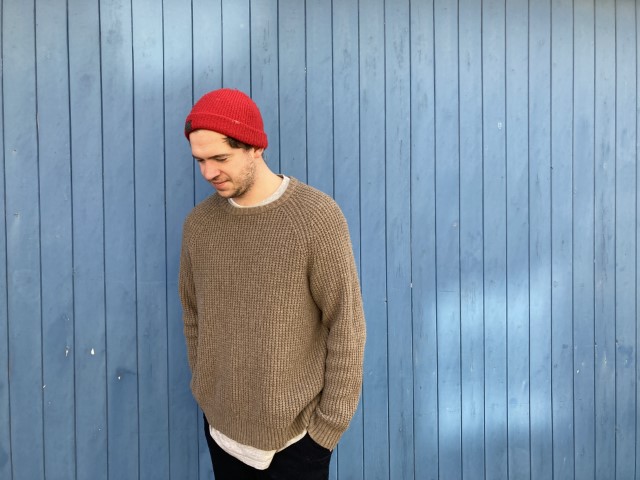
DJ Ben Tier is a highly sought-after Bristol based DJ and can be caught playing deep, funky, floor moving sets all over the UK. He has held down residencies at many prestigious venues in the capital, including Brilliant Corners, Spiritland, The Conduit and The Servant Jazz Quarters. He is also known to pack out stages at some of the UK’s leading festivals such as Wilderness Festival and Victorious Festival. Ben has a monthly radio show on Unmade and regular guest shows on Jazz FM and Noods radio.
Ben has a bespoke DJ’ing style, being an avid vinyl collector with well over 1000 records. He has an ear for many different styles and genres of music. Whether it’s a funky disco cut from America or a 70’s Nigerian Afro-Beat record, Bens selections all have a deep soulful groove that keeps the dancers thinking and moving. You can follow Ben and his music platform Shakara Soul on Soundcloud.com/shakarasoul, instagram.com/shakarasoul and facebook.com/shakarasoul.